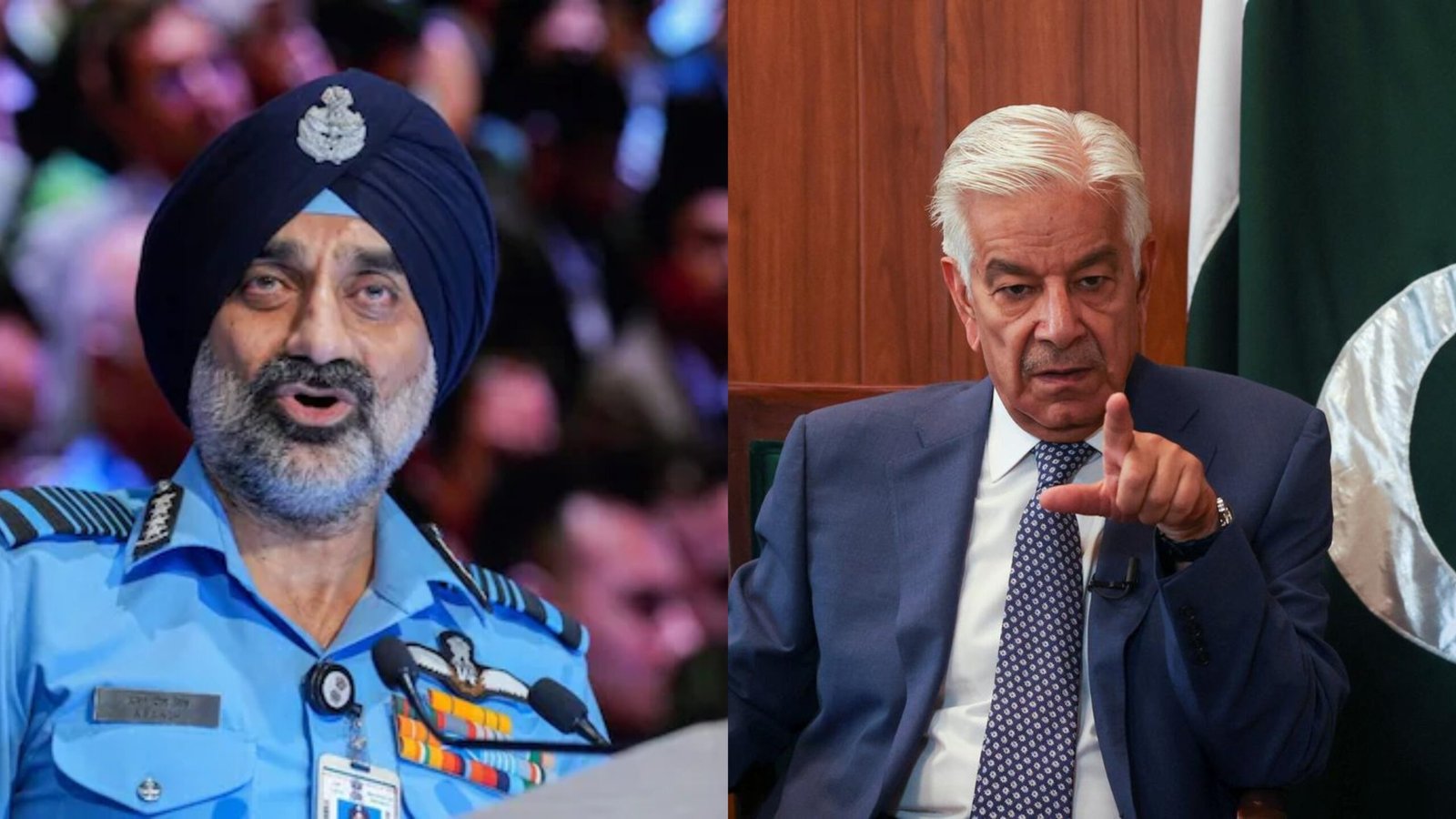
Pakistan Dismisses IAF Chief’s Claim of Shooting Down Pakistani Jets
Pakistan’s Defence Minister Khawaja Asif has hit back strongly at the IAF chief’s claim of shooting down Pakistani jets, calling it both “implausible” and “ill-timed.” Speaking in Islamabad, Asif said New Delhi’s belated statement, issued months after the May clashes, was nothing more than a political narrative crafted for domestic consumption.
The remarks came hours after Indian Air Chief Marshal A.P. Singh, during an event in Bengaluru, claimed India had downed five Pakistani fighter jets and another large military aircraft in May, reportedly using the S-400 air defence system. Singh added that “a few F-16s” were hit on the ground in Pakistan, along with a surveillance plane struck from 300 kilometres away.
Pakistan’s Version: Six Indian Warplanes Downed
Rejecting the IAF chief’s claim of shooting down Pakistani jets, Asif reiterated that “not a single” PAF aircraft was lost. Instead, he detailed that Pakistan’s Air Force had destroyed six Indian warplanes, including three Rafale jets, and even struck S-400 missile batteries during “Operation Bunyanum Marsoos.”
Backing Pakistan’s account, a senior French intelligence official confirmed to CNN that one Indian Rafale was indeed shot down, potentially marking the first known combat loss of the French-made aircraft. According to Asif, independent observers, senior Indian politicians, and global intelligence reports have acknowledged India’s heavy losses, which he said were “disproportionately higher” along the Line of Control.
Asif also challenged New Delhi to allow independent verification of aircraft inventories, suggesting it would expose “the reality India seeks to obscure.” He warned that falsifying war records in a nuclearised environment risked dangerous miscalculations, stressing that any breach of Pakistan’s sovereignty would meet a “swift and proportionate response.”
Escalation Rooted in April Attack
The May conflict followed weeks of rising tensions after an April 22 attack in Pahalgam killed 26 people, an incident India blamed on Pakistan, which denied involvement. The following day, India suspended the Indus Waters Treaty, cancelled visas for Pakistanis, closed the Wagah-Attari border, and cut diplomatic staff.
By early May, Indian missile strikes hit cities in Punjab and Azad Jammu & Kashmir, killing civilians and destroying infrastructure. Pakistan’s retaliation included shooting down multiple Indian jets and targeting strategic installations. The standoff ended only after intense international mediation, with both sides confirming a ceasefire.







